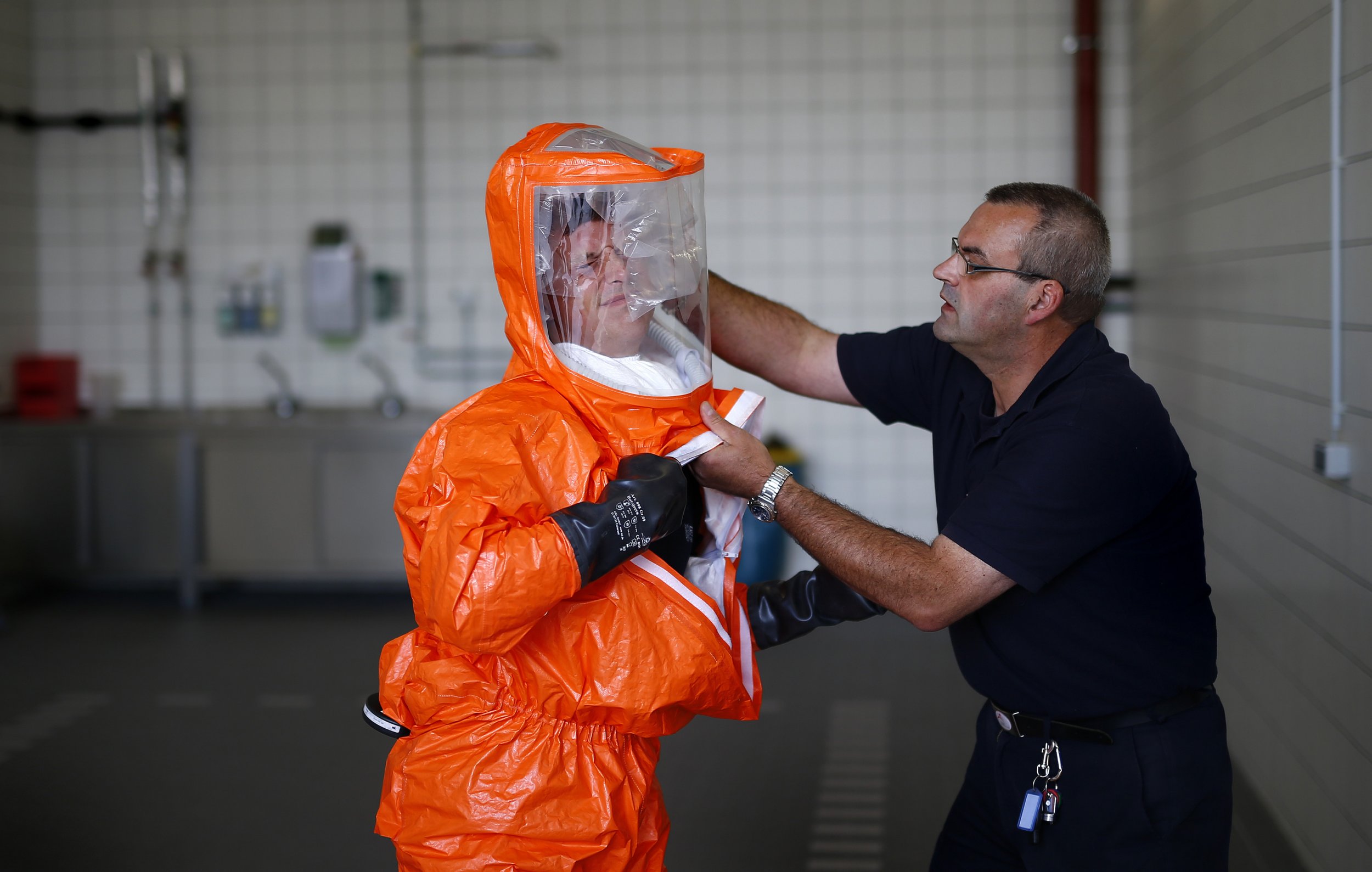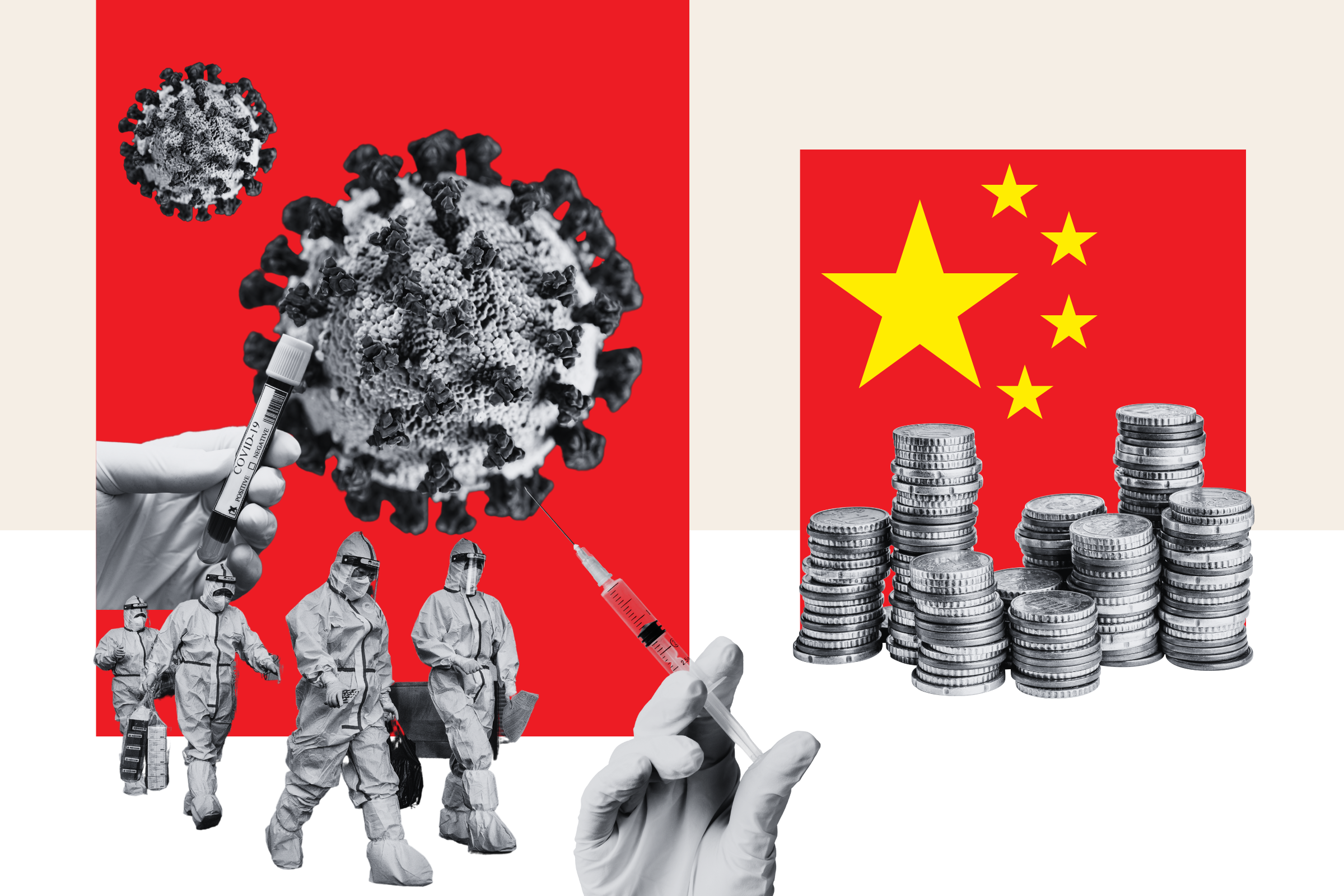
The Ebola virus, which has so far claimed as many as 1350 lives in West Africa, is unlikely to become a global pandemic, a new model of the disease found.
"We have not seen any community transmission outside of Africa, and this is expected to continue," concluded the study, published by Risk Management Solutions last week.
According to the World Health Organization, as of August 20, there have 2473 suspected and confirmed Ebola infections in Guinea, Liberia, Nigeria and Sierra Leone. Elsewhere around the world, hospitals have identified patients with symptoms similar to Ebola, but, to date, there have been no confirmed cases.
RMS's model of the virus measures Ebola's ability to proliferate based on two primary factors—the pathogen's deadliness and its rate of infection.
The former variable, known as virulence, is high for Ebola. In general, WHO says, Ebola can have a 90 percent case fatality rate. The strain currently spreading through West Africa carries a 55 percent mortality rate, making it, on average, more deadly than the Bubonic Plague, Yellow Fever, SARS, or MERS—Middle East Respiratory Syndrome—which, since 2012, has infected at least 834 people and killed 288.
According to RMS, Ebola's high virulence is mitigated by its low transmissibility. (As the researchers point out, virulence and transmission generally have an inverse relationship, as pathogens that readily kill their hosts have less time to spread). Ebola can only be transmitted through direct contact with bodily fluids. As such, each person infected with Ebola transmits the disease to only about 1.5 people. By comparison, each smallpox case, which is often transmitted through airborne droplets of saliva, produces about five new infections. And each measles infection, which also spreads through airborne saliva, can produces more than 10 new cases.
The balance between Ebola's virulence and transmissibility means that, according to RMS, under proper conditions, an outbreak is unlikely to become a global pandemic.
Anthony Fauci, the director of the National Institute of Allergy and Infectious Diseases, agrees with the Study's conclusions. Looking at the mechanisms through which Ebola spreads, he tells Newsweek, globally, "it is unlikely it would spread the way you see it in West Africa."
In West Africa, Ebola's transmissibility has been increased external environmental and cultural conditions, helping to facilitate its eight-month-long proliferation, which began in Guinea in December of 2013 and is now the deadliest in history. For example, according to a manual published by the WHO, the bodily fluids of Ebola patients who die from the virus remain contagious for several days. As a result, traditional burial practices, such as washing the dead, leave families and community members vulnerable to infection.
Behind the current outbreak, the next most deadly in recorded history occurred in Uganda between August 2000 and January 2001. During that time, 224 people are believed to have died from the pathogen—about a fourth the number so far in the West African outbreak. The reason they were able to contain the pathogen, Fauci says, is that "they were in a rural, geographically restricted areas. You were dealing with people in small villages." The setting of the current outbreak is far more urban, making the virus difficult to isolate.
The problem is compounded by West Africans' limited access to properly equipped medical facilities. "It's a lack of healthcare infrastructure," says Fauci. "That's the bottom line." Doctors in West Africa are struggling to treat and quarantine patients. By contrast, if the virus were identified in the U.S., the study said, the "likelihood of transmission from a single person is miniscule."
What would it take for Ebola to break out in the U.S.? "Theoretically," an RMS spokesperson tells Newsweek, "any disease with transmissibility greater than 1 has potential to become an epidemic...However, as you can imagine, transmissibility just over 1 means that interventions are more likely to halt the spread of the disease. Transmissibility of 10, as is common for a disease like measles, means interventions have to happen more quickly before the disease gets out of hand and spreads exponentially."
But, Fauci says, because Ebola is not an airborne virus, this scenario is "very, very, very unlikely."
Uncommon Knowledge
Newsweek is committed to challenging conventional wisdom and finding connections in the search for common ground.
Newsweek is committed to challenging conventional wisdom and finding connections in the search for common ground.
About the writer
To read how Newsweek uses AI as a newsroom tool, Click here.






